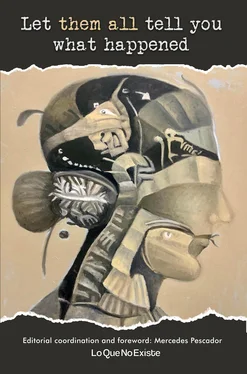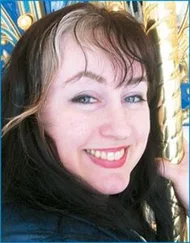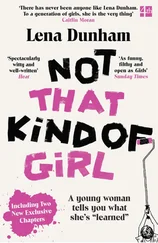I can tell you that this virus affects the elderly more aggressively, they are dying because there’s a shortage of breathing machines. They even ended up activating a protocol where the healthier younger patients win and the elderly, after spending their whole lives working, lose.
I’ve always thought we were free. However, nowadays I question how it seems like the powerful lords choose when there’s going to be a virus and how many people should be in the world. The flock was getting bigger and bigger and therefore more difficult to control. Besides, this is the best way to get rid of elderly people who are getting a pension and using Social Security resources. After some investigation, I found out that four months before this disaster had happened, there was a meeting with the wealthiest most powerful people in the world, where they carried out some drills and tests with bacteria and viruses. Is it just by chance that the virus appeared in the country with more overpopulation and at the time of larger migrations? Is it just by chance that the same person that has the patent for the virus with a company has, at the same time, another company which owns the vaccine ready to sell? I don’t believe in chance. We are not free.
My conclusion is that technology doesn’t make us happier, we are social animals and we need the love of our own people and gadgets shouldn’t interfere in a conversation while we eat with family or friends. I’m also aware that politicians are not really doing their job, but we don’t feel their absence, this is because our generation is thoroughly ignorant.
Nowadays, more than ever, we should see who is contributing and who must move out of the way.
Same as yesterday
Franco Roberto Tempone
Alvear, Argentina
It’s too early to start a day which repeats itself until tonight time, but it’s now over two hours ago since dawn’s first light. The calandra-lark perches on the bars of the dining room window. With sharp moves it looks at the corners while its tail moves up and down like blinking, it pecks on a mummified insect trapped in a spiderweb. It looks like it’s frowning and it’s staring at me with persistence. It’s like it’s challenging me, arrogant and smiley. Its eyes are fixed on me. I feel I’m safe in my fish tank, like an axolotl. The bird is sideways and in his eye I look for Ariadne’s thread to come out of this fiction. Fiction is also a labyrinth. I look and get lost in its eye’s iris, through the different cylindrical passages until I find the right one, I open the door and see the small round mirror, that one that hanged from a rusty nail in the shower in Mitre street, the mirror that, when I was a young boy, couldn’t show me who I was then. The other passages are false because they tell me about progress, productivity, success, competency, but they all orbit around the same thing, and they keep us waiting to then suffocate us in non-renovated waters.
I was opening doors and keeping myself busy reading about dystopian worlds where the end of the world would find humanity fighting with their last weapons in a scenario which was grey after explosions, chaotically deforested, flapping in dry rivers or cities which were unconsciously collapsing like components of a dream. But, always with humanity as the last survivor switching the light off.
The calandra-lark doesn’t have an ego, for sure, it glides on the air because it’s part of the colours of that sky which doesn’t have beginning or end. I make a sudden move to drink my mate and the bird takes off, flying towards a clear sky of an artificial blue hint like the Oaxaca sky. The calandra-lark is now just a speck in the vast sky… Getting smaller and smaller, an eye’s pupil; and farther, a virus, a threat, until its particles became condensed in the reflections of April’s sun.
A “millennial” in quarantine
Ignacio José Vidal Arriola
Ciudad de Guatemala, Guatemala
Secondary school teacher
Ilive in a very centric area of the city of Guatemala. I’m the youngest of three siblings, I live with my parents, I work and I’m also a student. These are my main obligations. I’m sure that many people my age are living a similar situation.
Unfortunately, Guatemala is a poor country hit by corruption and great inequality. However, we also have positive qualities like our hospitality and positive attitude, family closeness and respect for our traditions and culture.
I’m a teacher of Social Science and, since the moment we heard about this new disease at the beginning of the year, I discussed the news with my students in the classroom, but we never thought this disease would actually harm us.
In my home we enjoy a certain level of comfort which is not the average in our country. We always watch and discuss the international news, specially from Spain and Italy, countries where we’ve had the opportunity to travel to, and we feel culturally identified with. In our family we agree with the actions taken by our president to safeguard our health; home quarantine for people suspected to have the virus, immediate closure of schools and universities after the first case, a 12-hour curfew from four in the afternoon, and the mandatory use of face masks. Being the youngest in the house, I’ve taken the responsibility of looking after, accompanying and protecting my parents, who are quite old and have a few health problems.
I’m a millennial but I can’t help finding funny the behaviour of many young kids on social media, where they feel invincible and even unaffected by the virus. People from my generation, we always try to rebel against the system and its regulations. We are known to be egotistic, manipulating and even resentful with the treatment we receive from society and our parents: more difficulty to find jobs, fierce professional and work rivalry, and less room to get established. However, I think the majority of us are quite comfortable living with our parents still.
I’ve thought a lot about my social status as a millennial. Are we, by chance, ready to inherit this planet? Have we learned enough as to take landmark decisions on transcendental matters for humanity? To be in lockdown and to sacrifice going out with my friends has been terrible. And at this moment I realise that: we are growing and, at any given time, it will be us who become the leaders of our nations and societies.
I’m scared. Our health system doesn’t guarantee that all the population can be saved, and not forgetting the problems we already had like pollution, poverty, malnutrition, political corruption, economic inequality, discrimination.
At the same time, I really appreciate the company of my parents and I’ve seen the supportive and understanding side of my friends. I have also built up my patience and I’ve discovered, at a distance, that I feel a great affection for my students.
The future is uncertain. I don’t know if the people I love will survive. I don’t know if I will recover the comfortable and easy life I had, but, in this short period of time I’ve learned a very important lesson: life is not just about me, I’m the one who must work for my own life and the lives of the people around me. Now I am more aware of the inequalities and that worries me. As a millennial, I cannot afford to put the blame on others for my own mistakes and problems, and I cannot forget the reasons I have to be grateful.
A Spaniard trapped in Colombia
Anonymous
Mocoa, Colombia
At the beginning of February, when the virus wasn’t a concern for me, as it was happening very far from here and I thought that, like Ebola, we would end up forgetting about it, I was about to start the biggest trip of my life. I was going to Colombia and Peru for five months with my partner. More than a simple trip, it was an initiation, an experience of self-growth. The adventure was great: we found the perfect place and we got what we wanted. We stayed with a guy whose country house was in a mountain, one and a half-hour walk from the capital of Putumayo, where the Colombian Amazon starts. In that magical place, where we worked a bit in exchange for accommodation, there was no electricity, so I could only communicate with my family every now and then. We were very disconnected from civilisation, but they kept me a little bit up to date on how the situation was developing.
Читать дальше




![Ally Carter - [Gallagher Girls 01] I'd Tell You I Love You But Then I'd Have to Kill You](/books/262179/ally-carter-gallagher-girls-01-i-d-tell-you-i-lo-thumb.webp)







